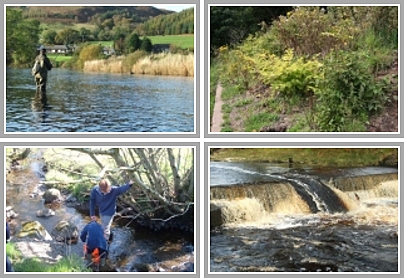Having now had some time to digest the contents of the Rural Economic Committee Report on Salmon Farming in Scotland, we can now make our own brief assessment based on the contents of the report.
Instantly, we heard claims of a whitewash or that this report had let the aquaculture industry off the hook and wasn’t worth the paper it was written on.
We can only disagree with these comments. While there are areas where there is yet much to be done, this report highlights the failures within the industry and considers the targets for expansion, making numerous hard hitting recommendations that must be addressed prior to any further development….not least reducing mortalities at existing facilities. There are 65 recommendations covering the entire review so inevitably some are potentially more beneficial than others but it has to be remembered that this report looked not only at the environmental issues facing this industry but also at the economic importance to rural economies.
We are encouraged that the overarching tone is critical of not only operational failures within the industry that have long been of great concern, but also of the regulatory failures that have allowed obvious problems to continue unchallenged and without penalty. Significantly enhanced regulatory standards are now expected and that starts with SEPA, the Fish Health Inspectorate and Marine Science’s regulation of the industry. More stringent standards have been proposed and should be implemented and enforced. Self regulation and voluntary reporting should become a thing of the past and there’s clear direction on what’s required and when. This industry must be accountable and report openly on its failures and success. It must also address those failures before it can be allowed to expand.
Increased transparency, improved performance, timeous reporting, reducing environmental impacts through off shore/deep water site selection, relocating poorly performing sites, improve technologies to control lice and gill diseases, precautionary approaches to the entire operation and increased commitment to research knowledge gaps etc etc., all are recommended and these points would go a long way to improving the current situation.
It’s is too easy to dismiss this report and quickly rubbish it without fully understanding just how far reaching and influential many of the recommendations raised within may be to future operation and expansion of salmon farming. Of course the sector is defensive on many fronts, probably more than we like, but that’s not that important when the recommendations from this the RECC report, Salmon Farming in Scotland and the previous ECCLR report into the Environmental Impacts of Salmon Farming were so agreed that the status quo is not acceptable and that change must come. The standards expected must be the highest of any aquaculture producers around the World. We should now expect the Scottish Government to act on these recommendations and we hope without delay (there was no indication of timescales within the report so it will depend on how pressing Scottish Ministers regard the content).
We appreciate the immense contributions and hard work made particularly by Fishery Management Scotland and Salmon and Trout Conservation Scotland to ensure wild fisheries interests were included but also the local DSFB’s and proprietors that also took time to attend and/or submit representations to the consultation.
ART of course contributed too and our response is included in annex B of the RECC report should anyone wish to read it.
The link to the RECC Report is below.

